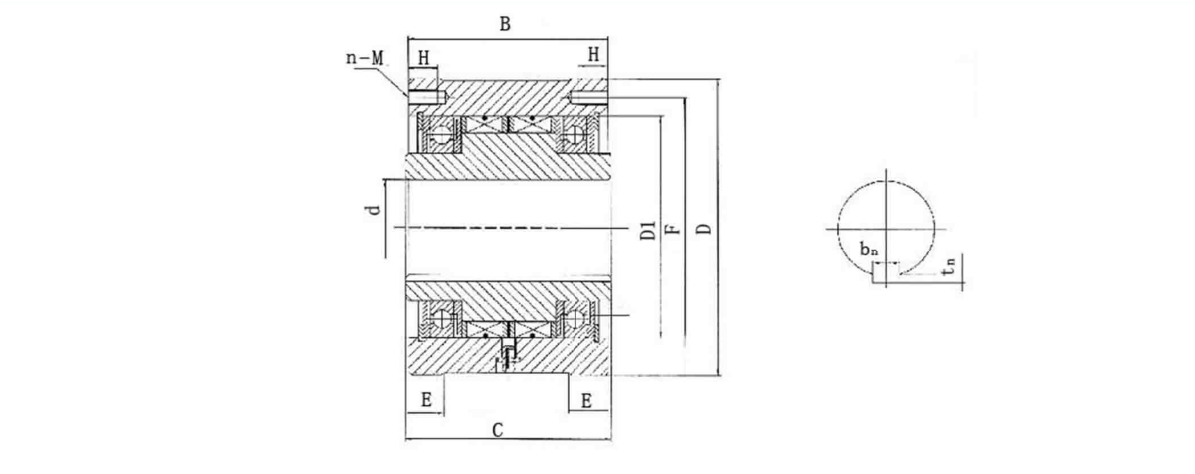Dec . 10, 2024 19:33 Back to list
High-Quality Ceramic Bearings Supplier for 6803 Specifications and Applications
Exploring the World of 6803 Ceramic Bearings A Supplier's Perspective
When it comes to high-performance applications, the choice of bearings plays a crucial role in ensuring efficiency, durability, and overall success. Among the various options available in the market, 6803 ceramic bearings have become increasingly popular due to their numerous advantages over traditional metal bearings. As a supplier dedicated to providing high-quality products, understanding the features, benefits, and applications of 6803 ceramic bearings is essential for meeting customer needs and driving business growth.
What are 6803 Ceramic Bearings?
The term 6803 refers to a specific size designation in the bearing industry. A 6803 bearing typically has an inner diameter of 17 mm, an outer diameter of 26 mm, and a thickness of 5 mm. The ceramic version of these bearings replaces traditional steel elements with ceramic materials, such as silicon nitride. This transition brings about significant improvements in various performance metrics.
Advantages of 6803 Ceramic Bearings
1. Corrosion Resistance One of the standout features of ceramic bearings is their excellent resistance to corrosion and chemical wear. Unlike steel bearings, which can rust or degrade in harsh environments, ceramic materials are non-reactive and can handle exposure to various chemicals, making them ideal for applications in industries such as food processing, pharmaceuticals, and chemical manufacturing.
2. Lightweight and High Strength Ceramic bearings are lighter than their metal counterparts, which is particularly beneficial in applications where weight reduction is critical, such as aerospace and high-speed machinery. Despite their lightweight nature, ceramic bearings offer exceptional strength and hardness, resulting in a longer lifespan and reduced maintenance needs.
3. Low Friction and Heat Generation The smooth surface of ceramic materials leads to lower friction coefficients compared to traditional steel bearings. This reduced friction not only enhances performance but also minimizes heat generation, allowing machinery to operate at optimal temperatures and ensuring higher efficiency over extended periods.
6803 ceramic bearing supplier

4. Electrical Insulation Ceramic bearings are electrically insulating, which makes them suitable for applications involving sensitive electronic components. They protect against electrical discharge that could potentially damage machinery, making them a preferred choice in electric motors and other high-tech applications.
Applications of 6803 Ceramic Bearings
Given their advantageous features, 6803 ceramic bearings find applications in various industries
- Aerospace The aerospace industry benefits from the lightweight and high-performance characteristics of ceramic bearings, which can enhance fuel efficiency and reduce wear in high-speed environments. - Medical Devices In the medical sector, the corrosion resistance and non-reactivity of ceramic bearings make them suitable for surgical instruments and equipment that require stringent hygiene standards. - Electronics Their electrical insulating properties make ceramic bearings ideal for precision equipment in electronics, preventing short circuits and improving reliability.
- Automotive High-performance vehicles often utilize ceramic bearings in key components to enhance speed and efficiency while reducing maintenance intervals.
Conclusion
As a dedicated supplier of 6803 ceramic bearings, understanding these advantages and applications is crucial for providing customers with the best products for their specific needs. The transition from traditional metal bearings to ceramic alternatives represents a significant leap forward in technology, offering superior performance, durability, and versatility. By investing in high-quality 6803 ceramic bearings, companies can optimize their operations, reduce costs, and enhance product reliability, ensuring long-term success in today’s competitive marketplace.
Latest news
-
25MM 2 BOLT UCFLX05-14 Flange bearing unit( oval)
NewsMar.07,2025
-
4 bolt UCF 200 series Pillow block bearings
NewsMar.07,2025
-
25MM 2 BOLT UCFLX05-14 Flange bearing unit( oval)
NewsMar.07,2025
-
UCF216-50 4-Bolt Flange Housing Square Bearing
NewsMar.07,2025
-
25MM 2 BOLT UCFLX05-14 Flange bearing unit( oval)
NewsMar.07,2025
-
spherical roller bearing material exporter
NewsMar.07,2025





